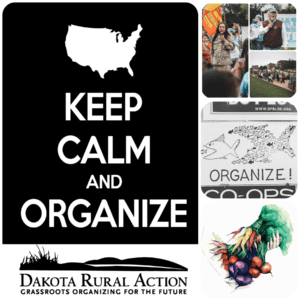Community Organizing

Organizers build organizations that maximize the power and participation of their members. Their role is to see that the people and structures are in place to create coherence and integrity within an organization.
Organizers are responsible for expanding the membership base, maintaining a focus on action, and preserving democratic, participatory structures and processes.
Organizers listen to their members, who know the community, and let people go at their own pace while also helping them develop the self-confidence to try new things. In community organizations, decision making is vested in the members. Big decisions should be made by as many members as possible.
Organizers are responsible for sharing information and raising questions, options, alternatives and problems that affect the collective power the group can wield.
Organizers do their fair share of the work, while also striving never to do for others what they can do for themselves. In other words, organizers work with, not for, their members. Empowered individuals speak for themselves.
Organizers identify and develop a diverse group of members who agree to serve as the organization’s public voice on a variety of issues.
Organizers are attuned to the power relationships and political agendas surrounding an issue, and analyze the social, political and economic forces that shape our communities, states, nation and world.
Organizers develop sound organizing strategies based on this power analysis.
